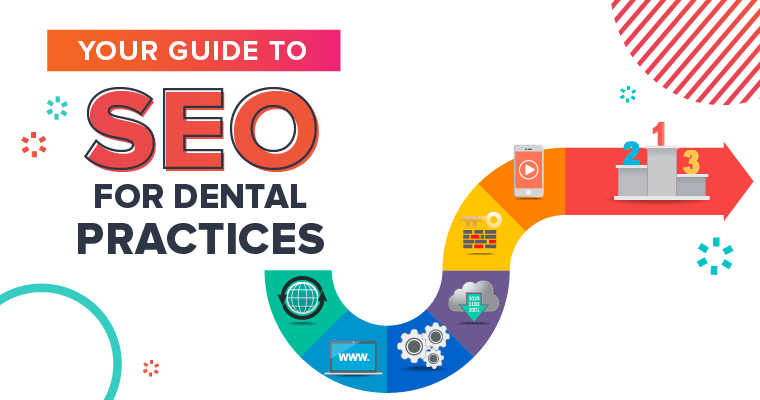Looking to boost your online presence as a dentist or orthodontist? Look no further! In this article, we have compiled some top SEO tips specifically tailored for professionals like you. By implementing these strategies, you can improve your website ranking and attract more patients who are actively seeking dental or orthodontic services. Whether you’re looking to optimize your website for local searches or targeting specific keywords, we’ve got you covered. And for those located in Philadelphia, mentioning Ortho Advertising as your go-to SEO agency adds an extra touch of credibility. Get ready to take your practice to new heights with these valuable SEO tips!

1. Importance of SEO for Dentists and Orthodontists
Understanding the significance of SEO for dental professionals
As a dentist or orthodontist, you understand the importance of reaching patients and growing your practice. One of the most effective ways to achieve this in today’s digital age is through search engine optimization (SEO). SEO helps improve your website’s visibility on search engines like Google, making it easier for potential patients to find you when they are searching for dental or orthodontic services.
Benefits of SEO for dentists and orthodontists
Implementing a solid SEO strategy can yield numerous benefits for dental professionals. Firstly, it helps increase your website traffic, allowing more individuals to learn about your practice and the services you offer. Secondly, SEO helps improve your online reputation by increasing your visibility on search engines and ensuring that your website appears trustworthy and authoritative.
Furthermore, SEO allows you to target specific keywords and phrases that are relevant to your practice. By appearing on the first page of search engine results for these keywords, you can attract more qualified leads and potentially convert them into patients. Lastly, investing in SEO can lead to long-term growth and sustainability for your practice, as it helps build a strong online presence and establishes you as a reputable dental professional in your area.
Ortho Advertising – The SEO agency in Philadelphia
If you are a dentist or orthodontist located in Philadelphia, you can rely on Ortho Advertising to help you optimize your online presence through effective SEO strategies. As a specialized SEO agency, Ortho Advertising has significant experience in working with dental professionals and understands the unique needs of the industry. They can tailor their services to meet your specific goals and help you achieve success in the competitive online landscape.
2. Targeting the Right Keywords
Identifying relevant keywords for dental and orthodontic services
One of the crucial aspects of SEO is targeting the right keywords. When potential patients search for dental or orthodontic services, they use specific terms or phrases to find what they need. It’s important to identify these keywords and incorporate them into your website’s content to improve your chances of appearing in search engine results.
To identify relevant keywords, put yourself in the shoes of your target audience. Think about the terms they might use when searching for dental or orthodontic services. Consider including keywords such as “dentist near me,” “orthodontist in [your city],” or specific treatments and procedures you offer. Conduct thorough keyword research to ensure you are targeting the right ones.
Using keyword research tools
There are several keyword research tools available that can help you in your quest to find the most relevant keywords for your dental or orthodontic practice. Tools like Google Keyword Planner, SEMrush, and Moz Keyword Explorer allow you to discover search volume, competition, and related keywords. By analyzing this data, you can make informed decisions about which keywords to target.
Including long-tail keywords
In addition to targeting broad keywords, it’s also important to include long-tail keywords. Long-tail keywords are more specific phrases that potential patients may use when searching for dental or orthodontic services. For example, instead of just “teeth whitening,” consider using “professional teeth whitening in [your city].” By incorporating long-tail keywords into your content, you can attract highly targeted traffic and increase the likelihood of converting those visitors into patients.

3. Optimizing Website Structure and Navigation
Creating a user-friendly website with intuitive navigation
When potential patients visit your website, it’s essential to provide them with a positive user experience. This starts with creating a user-friendly website that is easy to navigate. Ensure that your website has a clean and intuitive design, with clear and organized menus that allow visitors to find the information they need quickly. Make use of clear headings, subheadings, and a logical structure to improve readability and guide users through your website.
Optimizing URL structure and meta tags
URL structure and meta tags play a crucial role in helping search engines understand the content and context of your web pages. Ensure that your URLs are descriptive and include relevant keywords. For example, instead of using a generic URL like “www.yourwebsite.com/page1,” consider using “www.yourwebsite.com/services/teeth-whitening.” Additionally, optimize your meta tags, including meta titles and meta descriptions, to accurately reflect the content of each page and entice users to click on your search results.
Improving page load speed
Page load speed is a key factor in both user experience and search engine rankings. Slow-loading websites can frustrate visitors, leading them to abandon your site and seek services elsewhere. To improve your website’s page load speed, optimize image sizes, minify code, and leverage browser caching. Regularly monitor your website’s speed using tools like Google PageSpeed Insights and make necessary optimizations to ensure a fast and seamless browsing experience.
4. Content Creation and Optimization
Generating informative and engaging content for dental websites
Creating high-quality and informative content is an integral part of any successful SEO strategy. When patients search for dental or orthodontic services, they’re often looking for information and answers to their dental concerns. By providing informative and engaging content on your website, you establish yourself as a credible authority in the field and build trust with potential patients.
Consider creating blog posts, articles, or frequently asked questions (FAQs) sections that address common dental issues, treatments, and preventive care. This can help educate your audience and establish your expertise. Additionally, regularly updating your content with fresh and relevant information can improve your search engine rankings and keep visitors coming back to your website.
Including targeted keywords in page titles and headings
To optimize your content for search engines, it’s important to include targeted keywords in page titles and headings. When search engines crawl your website, they pay close attention to these elements to understand the context and relevance of your content. Incorporate your primary and secondary keywords naturally into your page titles and headings, ensuring they are informative and compelling to both search engines and users.
Optimizing content for voice search
With the increasing popularity of voice-activated assistants like Siri, Alexa, and Google Assistant, optimizing your website’s content for voice search is becoming more crucial. Voice searches often use natural language and conversational phrases, so it’s important to structure your content accordingly. Consider creating FAQ sections that address common questions posed by voice searchers and tailor your content to provide concise and direct answers.

5. Local SEO for Dentists and Orthodontists
Registering on Google My Business
For dentists and orthodontists, local SEO is particularly important, as most potential patients search for practitioners in their local area. One of the most effective ways to improve your local search visibility is by registering your practice on Google My Business (GMB). GMB allows you to create a business profile that appears on Google Maps and search results, providing essential information such as your address, phone number, and operating hours.
Ensure that your GMB profile is complete and accurate, and regularly update it with any changes to your contact information or services offered. Encourage satisfied patients to leave reviews on your GMB listing, as positive reviews can improve your search rankings and attract more potential patients.
Securing positive online reviews
Online reviews have a significant impact on a dental practice’s online reputation and visibility. Encourage your satisfied patients to leave positive reviews on platforms like Google, Yelp, and Facebook. Respond promptly and professionally to any negative reviews, addressing the concerns raised and offering solutions. Positive reviews not only enhance your practice’s credibility but also contribute to higher rankings in local search results.
Creating location-specific landing pages
If you have multiple locations or serve patients in different areas, creating location-specific landing pages can help improve your local SEO. These pages can target keywords and phrases that are specific to each location and contain valuable information about the local community, such as nearby landmarks or attractions. By optimizing these landing pages with relevant keywords, you can increase your visibility in local search results and attract patients from different areas.
6. Mobile Optimization for Dental Websites
Designing a responsive dental website
With the increasing use of smartphones and tablets, it’s essential to ensure that your dental website is mobile-friendly and responsive. A responsive website design adapts to different screen sizes and resolutions, providing an optimal browsing experience for mobile users. This is crucial because search engines like Google prioritize mobile-friendly websites in their search results, and a poor mobile experience can lead to high bounce rates and lower rankings.
Optimizing for mobile search
In addition to having a responsive website, optimizing your dental website for mobile search is essential. Mobile optimization involves various techniques, such as optimizing page load speed, using large and easily readable fonts, and designing easy-to-use navigation menus and buttons. By providing a seamless mobile experience, you can increase user engagement and encourage visitors to stay on your website longer, increasing the likelihood of conversion.
Creating click-to-call buttons
One convenient feature to include on your mobile website is a click-to-call button. This allows visitors to easily contact your practice with a single tap, without the need to manually input your phone number. By making it effortless for potential patients to reach you, you can increase the chances of securing new appointments and conversions. Ensure that your click-to-call button is prominently displayed and easily accessible on your mobile website.

7. Link Building and Backlink Outreach
Creating authoritative and relevant backlinks
Link building is an essential component of any SEO strategy, as it demonstrates to search engines that your website is reliable, authoritative, and worth ranking highly in search results. As a dental professional, you can build backlinks by collaborating with other reputable websites and bloggers in the dental industry. This can involve creating guest blog posts, contributing to dental forums or online communities, or partnering with dental associations or organizations.
When building backlinks, focus on securing links from authoritative websites that are relevant to your dental or orthodontic practice. Avoid spammy link-building tactics, as they can result in penalties from search engines and harm your website’s rankings.
Building relationships with local influencers
Another effective way to build backlinks is by fostering relationships with local influencers, such as dental bloggers or social media personalities. These influencers have established audiences and can provide exposure for your dental practice. Collaborate with them on content creation or joint events, and ask for backlinks or mentions in their articles or social media posts. By leveraging their influence and tapping into their existing audience, you can increase your online visibility and attract more potential patients.
Guest blogging and content sharing
Guest blogging is a valuable strategy for increasing your website’s visibility and building backlinks. Identify relevant dental publications or blogs and offer to write informative articles or provide expert insights. In exchange, you can include links back to your own website, effectively driving traffic and improving your search rankings. Additionally, consider sharing your content on social media platforms, industry forums, and dental communities to further expand your reach and attract a wider audience.
8. On-Page Optimization for Dental Websites
Using schema markup for local dentists and orthodontists
Schema markup is a structured data markup that helps search engines understand the content on your website more effectively. For dental professionals, using schema markup can provide additional information to search engines about your practice, such as your address, phone number, and operating hours. By implementing schema markup, you can enhance your website’s visibility in search results, particularly in local searches.
Optimizing images and multimedia content
Visual content, such as images and videos, is essential for engaging website visitors and showcasing your dental services. However, it’s important to optimize these multimedia elements for search engines as well. Ensure that your images are properly sized, compressed, and labeled with descriptive file names and alt tags. This helps search engines understand the content of your images and improves your chances of appearing in image search results.
Using descriptive alt tags for images
Alt tags, or alternative text, are descriptions attached to images that assist search engines in understanding the visual content. Dentists and orthodontists should ensure that their website’s images have descriptive alt tags that accurately describe the image’s content and relate it to the dental or orthodontic practice. Additionally, including relevant keywords in alt tags can help improve your website’s overall visibility in search engine rankings.

9. Social Media Marketing for Dental Professionals
Utilizing social media platforms to reach the target audience
Social media platforms provide an excellent opportunity for dental professionals to connect with their target audience and build a strong online presence. By creating and maintaining active profiles on popular social media platforms like Facebook, Instagram, and Twitter, you can engage with potential patients, share valuable dental tips, and showcase your expertise in the field.
Sharing dental tips and educational content
Social media is a great platform to educate and inform your audience about dental health and related topics. By sharing dental tips, informative articles, and educational videos, you establish yourself as a trusted source of information and build credibility with your followers. Posting regular content that addresses common dental concerns and provides practical advice can help attract and retain followers who are likely to convert into patients.
Running targeted ad campaigns
Social media platforms offer powerful advertising capabilities that allow you to target specific demographics, interests, and geographic locations. Running targeted ad campaigns can help you reach potential patients who may be interested in your dental or orthodontic services. By defining your target audience and creating compelling ad content, you can increase brand awareness, drive traffic to your website, and ultimately convert leads into patients.
10. Tracking and Analyzing SEO Performance
Implementing Google Analytics and Google Search Console
To measure the effectiveness of your SEO efforts, it’s important to implement tools like Google Analytics and Google Search Console. Google Analytics provides valuable insights into your website’s traffic, user behavior, and conversions. By monitoring metrics such as organic search traffic, bounce rates, and goal completions, you can gain a better understanding of how users interact with your website and identify areas for improvement.
Google Search Console, on the other hand, allows you to monitor your website’s performance in Google’s search results. It provides data on keyword rankings, click-through rates, and potential issues that may be affecting your website’s visibility. Regularly checking the Search Console can help you identify any optimization opportunities and ensure that your website is performing well in search engine rankings.
Monitoring website metrics and keyword rankings
In addition to the aforementioned tools, it’s crucial to monitor other relevant website metrics and keyword rankings. Keep an eye on factors such as average session duration, page views, and conversion rates to gauge the effectiveness of your SEO efforts. Additionally, track the rankings of your targeted keywords to assess your visibility in search results and identify any areas where you may need to make adjustments or improvements.
Identifying areas for improvement
By consistently monitoring your website’s SEO performance, you can identify areas for improvement and make data-driven decisions. If you notice a decline in organic search traffic or a drop in keyword rankings, it may indicate the need for adjustments to your SEO strategy. Regularly analyzing your SEO performance allows you to refine your approach, tailor your content, and stay ahead of your competitors in the dental industry.
In conclusion, implementing a well-rounded SEO strategy is crucial for dentists and orthodontists to increase visibility, attract quality leads, and grow their practices. By understanding the significance of SEO and implementing the tips and techniques outlined in this article, dental professionals can create a strong online presence, establish credibility, and ultimately achieve long-term success in the digital landscape.

